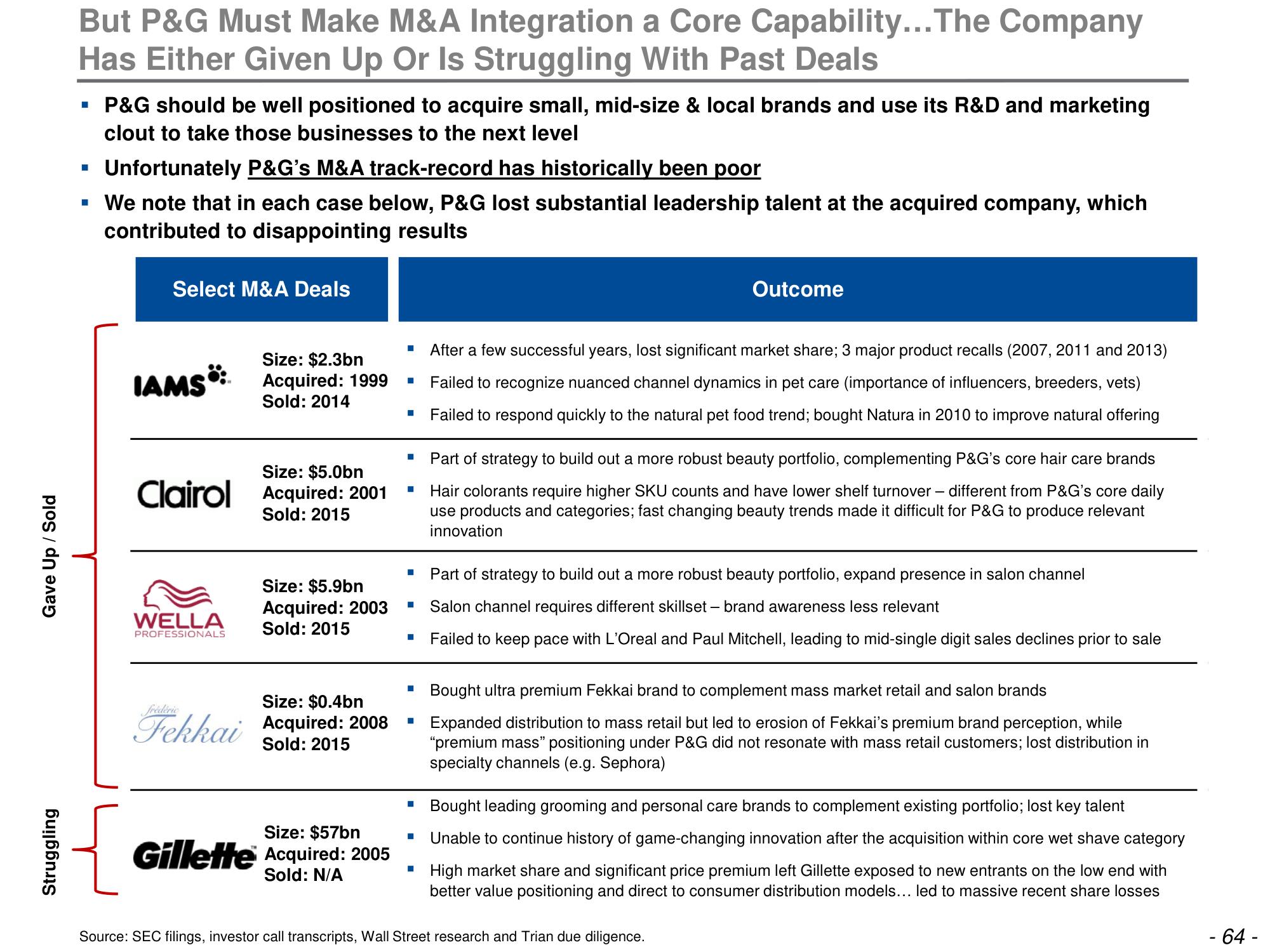Trian Partners Activist Presentation Deck
Gave Up / Sold
Struggling
But P&G Must Make M&A Integration a Core Capability... The Company
Has Either Given Up Or Is Struggling With Past Deals
■
P&G should be well positioned to acquire small, mid-size & local brands and use its R&D and marketing
clout to take those businesses to the next level
Unfortunately P&G's M&A track-record has historically been poor
▪ We note that in each case below, P&G lost substantial leadership talent at the acquired company, which
contributed to disappointing results
{
Select M&A Deals
IAMS":
Size: $2.3bn
Acquired: 1999
Sold: 2014
Size: $5.0bn
Clairol Acquired: 2001
Sold: 2015
WELLA
PROFESSIONALS
Size: $5.9bn
Acquired: 2003
Sold: 2015
Size: $0.4bn
Fekkai Acquired: 2008
Sold: 2015
Size: $57bn
Gillette Acquired: 2005
Sold: N/A
I After a few successful years, lost significant market share; 3 major product recalls (2007, 2011 and 2013)
Failed to recognize nuanced channel dynamics in pet care (importance of influencers, breeders, vets)
Failed to respond quickly to the natural pet food trend; bought Natura in 2010 to improve natural offering
■
■ Part of strategy to build out a more robust beauty portfolio, complementing P&G's core hair care brands
Hair colorants require higher SKU counts and have lower shelf turnover - different from P&G's core daily
use products and categories; fast changing beauty trends made it difficult for P&G to produce relevant
innovation
■ Part of strategy to build out a more robust beauty portfolio, expand presence in salon channel
Salon channel requires different skillset - brand awareness less relevant
Failed to keep pace with L'Oreal and Paul Mitchell, leading to mid-single digit sales declines prior to sale
■
Outcome
■ Bought ultra premium Fekkai brand to complement mass market retail and salon brands
Expanded distribution to mass retail but led to erosion of Fekkai's premium brand perception, while
"premium mass" positioning under P&G did not resonate with mass retail customers; lost distribution in
specialty channels (e.g. Sephora)
■
Bought leading grooming and personal care brands to complement existing portfolio; lost key talent
■ Unable to continue history of game-changing innovation after the acquisition within core wet shave category
High market share and significant price premium left Gillette exposed to new entrants on the low end with
better value positioning and direct to consumer distribution models... led to massive recent share losses
■
Source: SEC filings, investor call transcripts, Wall Street research and Trian due diligence.
- 64 -View entire presentation